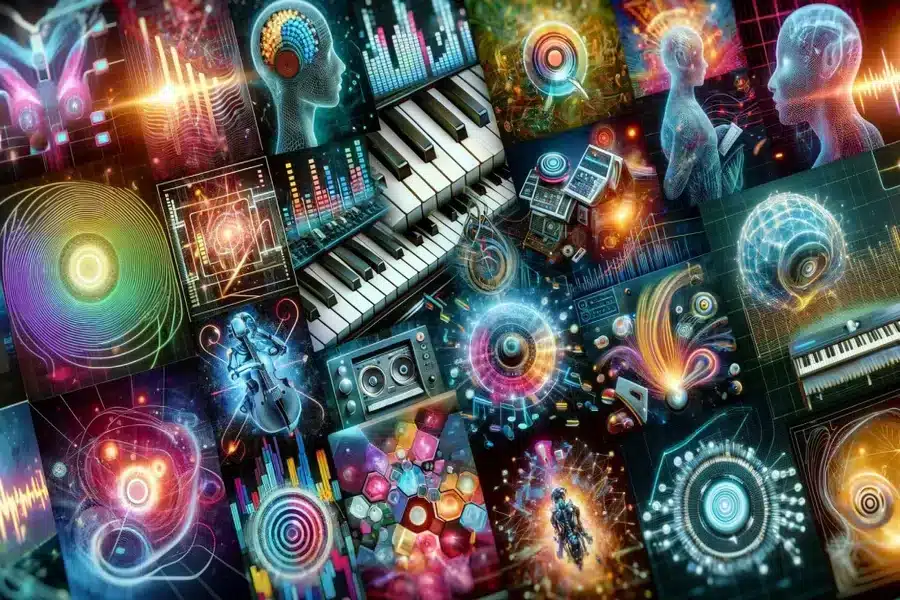The Independent Artist’s New Ally
The music industry has always been a space of creativity, but it’s also long been shaped by access—access to studios, producers, mixing engineers, and budgets. For independent musicians looking to polish their skills and create something worthwhile, turning their concepts into a working piece of music was usually exhausting and expensive.
With this rapid growth in technology, text-to-music is already being trained using thousands of samples, Song structures, and lyrical patterns through Machine learning. With the pace that which this technology is advancing, it won’t be surprising if people in the future are able to set an outline, theme, or even an entire story and get a full movie with a background score composed for them.
Understanding AI Text to Music
The AI transcribes written files containing descriptions and lyrics directly into music Roughs. These are created using complex algorithms crafted through machine learning and are patterned on thousands to millions of existing tracks. This allows users to generate unique samples and songs on demand.
The Importance of Independent Creators
AI has great potential to assist self-represented artists who can single-handedly be songwriters, producers, mixers, or marketers. In their case, the most valuable resources are time, money, and the availability of tools. Automated Music Generation meets some of these challenges by providing instant solutions that adapt to creative requirements.
This is how it best motivates creators:
- Prompt-Driven Experimentation: Musicians no longer need to build each idea from the ground up. These days, they can start through text prompts, unleashing various song components such as chord progressions, style, or arrangement.
- Lyrics-to-Demo Conversion: Creators can now receive an entire track with the demo consisting of lyrics, melody, instrumentation, and in some specific cases, vocals. Such frameworks are pivotal during the ideation stage and enhance the process of refining preliminary demos.
- Budget-Friendly Composition: Such technologies widen the opportunities for those artists who dream of working with professional producers or studio sessions. With the advent of AI, artists can now effortlessly generate accompanying tracks, loops, and even entire songs.
- Creative Diversification: AI makes it easier to try out new sub-genres or styles a person wouldn’t normally focus on.
At the center of these possibilities lies the true promise of AI text to music technology: it enables independent musicians to have greater liberty in exploring, creating, and publishing music without the hurdles of expertise or budget constraints.
The Future of AI: Stepping Forward
It’s is almost a certainty that bands of the future will be able to list valuable assets like a new text-to-guitar tool able to understand complex inputs and create advanced rhythms and strumming patterns through simple voice commands alongside fully customizable modifiers. The fact that AI will one day allow people to tell their smartphones how to play instruments and let these devices breathe life to their words is astonishing.
According to the predictions, AI with the ability to rapidly evolve will, in the next five or so years, be able to conduct entire orchestras, spawning from complex outlines given to the AI. That alone invites the question of how long Moog’s pen’s up will last as a lead. Along with emulating people and playing all musical instruments imaginable, being able to edit videos is planned to be one of the many tasks done without worrying about quality control, giving us non-stop-infinite filler material, solving the problem of raised.
Practical Applications
-
Automated Songwriting
Musicians stuck at a particular part of a song or suffering from creative block can make use of AI tools to produce melodies based on the themes they have already written. This can help them overcome the inspiration hurdle.
-
Creating Custom Beats and Loops
Not only do many musicians perform in a loop-based ecosystem, but they also devise their loops. Instead of outsourcing, they can generate custom loops tailored to their inputs during the recording session to match their style or mood.
-
Demos for Collaborative Work
AI provides expressive demos that can be used as references for time-consuming remote collaborations. When pitching songs to vocalists or duo instrumentalists, one needs to have a clear vision of the song being proposed.
-
Coming Up With Budget Releases
Musicians working on EPs or singles without full production teams can come up with rough tracks, which can be polished later, especially with distribution services that prioritize digital-first, due to AI tools.
Looking Forward:
Musicians will not face elimination from AI; instead, their potential will broaden. Over time, these tools will become more flexible, allowing artists to personalize them based on their style, preferred vocal tone, or instruments. This tuning may make AI music production indistinguishable from human production, except that it is faster and more scalable.


